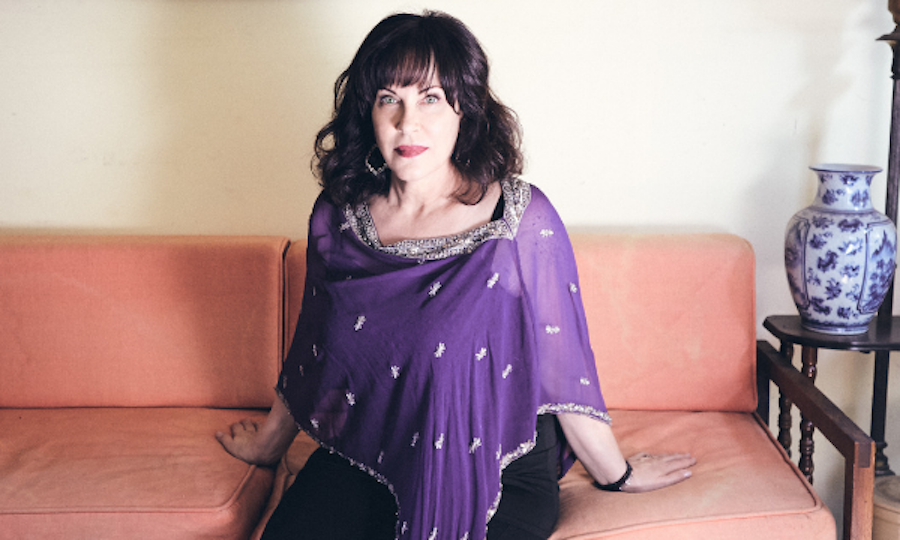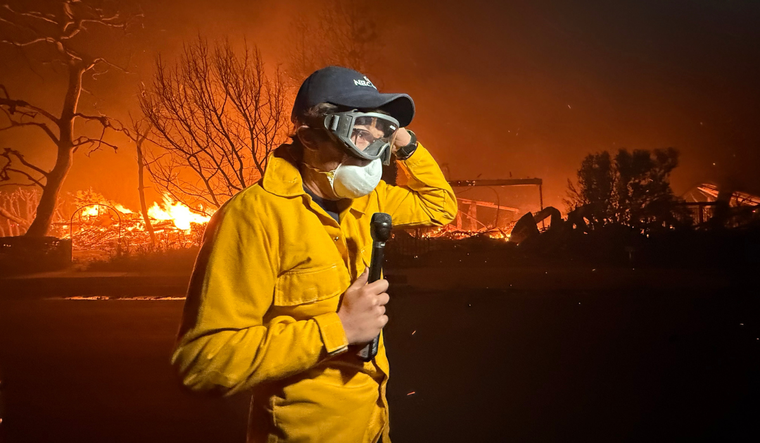Singer Janiva Magness Reveals the Trauma of Her Childhood
In her memoir, “Weeds Like Us,” Grammy-nominated blues and soul singer Janiva Magness chronicles her rise to fame, from her traumatic childhood, in which both her alcoholic parents passed away by suicide, to growing up in foster homes to becoming pregnant when she was 16. In the excerpt below, she reveals the pain her father went through after the death of her mother.
It was shocking to see him fall apart so completely after her suicide, fumbling and flailing around with even the simplest tasks. I barely recognized him. For years after her death, those memories of him melting down were lodged firmly in the front of my brain. That’s no longer the case, thank goodness. But I can still conjure up the picture of Dad collapsing in grief on the frozen cemetery ground as my mother’s casket was lowered slowly into her grave back in Detroit.
“Please, Billie, no, please no,” he wailed. “Please forgive me. Please, dear God. No . . . ”
My big, strong, smart, ex-policeman dad who always seemed to be in control could not stop shrieking. His cries haunted us all. Once the service ended, everyone left the gravesite as quickly as they could. I stood there alone with him for a long time, freezing in the bitter cold. I watched him sob and shake as he held his head in his hands. My fingers were turning blue, but I waited until he regained enough composure to help him up so we could get out of there. In the crazy swirl of emotions I felt at the time, anger at Dad was at the top of the list. I was enraged over his role in my mother’s death. Furious he was so up and down emotionally. Furious he was so distant and strict. I was livid with him for making us move from Minnesota to the St. Louis suburbs and the house my mother hated so much. I never gave a moment’s thought to any of the demons that tormented him. All I knew was he was the head of our family and our family was fucked up. I was furious at him for everything that was wrong with us. But somehow, I still had enough empathy for him in my heart. I wasn’t about to leave him alone at the graveside as broken as he was inside and out. I had to make sure he was able to pick himself up and walk away from my mom for the final time.
Once the funeral was behind us and we were back home in Kirkwood, Dad was no better. He lay on the bed for weeks with the curtains closed, crying and moaning. It was like having a sick baby to care for. He wouldn’t eat. I had to try to feed him and get him to sit up, take a bath. He was unable to pack up her things, so that task fell to 13 year old me. He ordered me to put everything in boxes and send the whole pile to Goodwill.
I stepped gingerly into their bedroom in the middle of the afternoon to get started. The air was thick with darkness. My father was lying on the bed fully dressed. I drew open one of the blinds to get some light, so I could go through Mom’s closet. He protested, so I pulled them tight again, leaving just a crack of light to see what I was doing as I opened the closet.
I had forgotten she had such a stunning collection of cocktail dresses – twenty five or thirty of them – all lined up perfectly in a row. Several were elegant, flowing chiffon. They were all black with the exception of one sizzling red number. These dresses had fit her like a glove. I could still smell her perfume lingering on the material. There were shoes, gloves, purses and hat boxes galore. Everything was organized neatly, in rows. This was going to be my last goodbye to my mother, a mother I never really knew.
“There’s too much cool stuff in here to just give it away,” I said to my dad, his face buried in a pillow on the bed.
“Give it to Goodwill,” he moaned while barely looking up. “I told you I don’t want any of it.”
Slowly, I took down each dress from the hanger it was draped on, examined the label to see who made it, drinking in the smell. I knew it would be the last time I’d experience even a trace of my mother’s physical presence. I worried about each item, how to fold it just as she would. What a deeply sorrowful exercise, as I carefully placed my mother's dresses, one by one, in a big cardboard box. Folding each one just so, within moments I knew this was a final ritual for her. Such an unfitting burial ground for my mother’s elegant clothes. Such an unfitting goodbye for my mother.
It felt like I was dismantling a holy shrine. More than anything, I had an overpowering realization that I never really got to know this woman who had given birth to me thirteen years earlier, cooked my meals, sewed my clothes, lived in the same house I did. My mother was a stranger to me. I knew a few things about her, but I had no idea who she was or what was in her heart. There was barely a connection between us, none of the intimacy or love that should come with raising a child. I saw it between others and her, particularly Jimmie and even Sam, and, of course, with Sara. Never with me.
I put those thoughts aside as best I could and finished emptying her closet. I whispered to her while placing her clothes in the boxes as delicately as possible. I’m not sure I thought I deserved her grace, but I asked her to forgive me for everything I did in my life that caused her pain. I asked her to forgive me for telling her to go to hell. I asked her to forgive me for being so much trouble, for not being a better daughter. My heart was beating rapidly as I did this. My legs and hands trembled; my eyes were wet. Somehow, I managed to finish clearing out her closet.
I was a selfish kid, but with my dad in such desperate shape, I knew he needed my help. He was broken, unable to do anything for himself. I had to get Mom's things out of that house. Maybe then he would start to come to terms with the fact that she was gone. Maybe then he would be able to start putting his own life back together. At least that’s what I hoped.
The trouble with suicide, of course, is that it’s permanent. There is no taking it back. No apologizing, no fixing it or trying again. It hangs in the air and attaches itself eternally to those left behind. Whatever went on between the two of them was now frozen in time. For-fucking-ever.
The Sunday Paper inspires hearts and minds to rise above the noise. To get The Sunday Paper delivered to your inbox each Sunday morning for free, click here to subscribe.
READ MORE STORIES THAT MOVE HUMANITY FORWARD
READ MORE STORIES THAT MOVE HUMANITY FORWARD
Please note that we may receive affiliate commissions from the sales of linked products.



